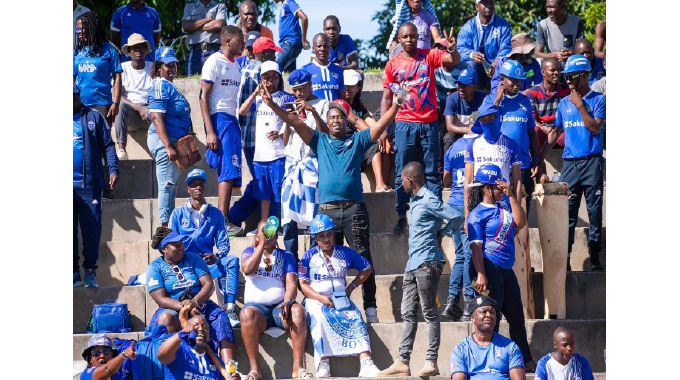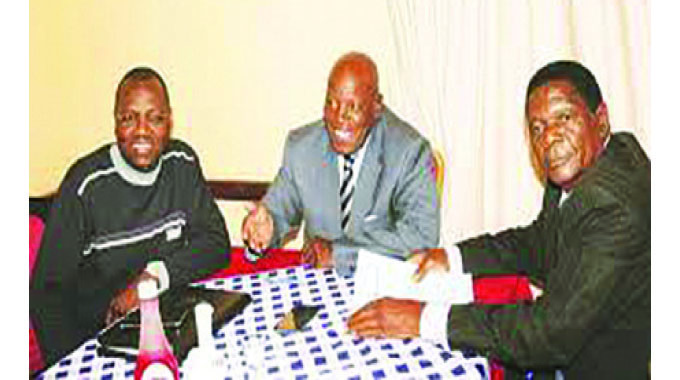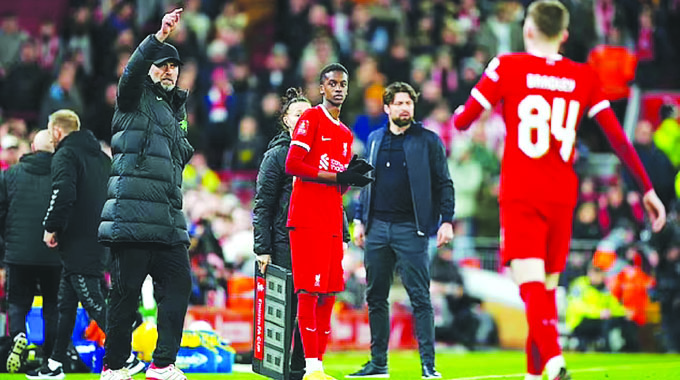If Costa Rica can beat Italy and Uruguay at the World Cup, why shouldn’t we also dream very big?

 BRAZIL might not exorcise the ghost of the Maracazano as the punishing weight of a nation, which has been waiting for more than half a century for this to happen, appears too much for a team without a centre forward it can trust.The Brazilians have been waiting for what seems like an eternity for the cleansing ceremony, which can only come with a home World Cup triumph, to make up for the national disaster triggered by the 1950 World Cup.
BRAZIL might not exorcise the ghost of the Maracazano as the punishing weight of a nation, which has been waiting for more than half a century for this to happen, appears too much for a team without a centre forward it can trust.The Brazilians have been waiting for what seems like an eternity for the cleansing ceremony, which can only come with a home World Cup triumph, to make up for the national disaster triggered by the 1950 World Cup.
Needing just a draw in their final game against Uruguay, in a World Cup played on a league basis, in the last game against Uruguay, there was a breeze of expectancy across Brazil and, on the morning of the match, a newspaper printed a team photo with the headline: “THESE ARE THE WORLD CHAMPIONS”.
The players had been presented with gold watches which carried a special inscription, “FOR THE WORLD CHAMPIONS” and the then Fifa president, Jules Rimet, even prepared a speech, on the morning of the game, to congratulate the Brazilians for becoming world champions. There were 200 000 fans at the Maracana, a record for a World Cup match, and with 11 minutes to play, the Brazilians were in control, they led 1-0 in a game they only needed a draw, the nation was already partying and, in just a few minutes, their coronation would be confirmed. Or so everyone thought.
Football can be quite a devilish game and, somehow, Uruguay fought back and scored not once but twice to win 2-1 and take the World Cup, plunging an entire nation into mourning and turning heroes into villains who would never be forgiven forever.
One distraught fan committed suicide, three others died from heart attacks across Brazil and the great Pele later revealed that “it was the first time I saw my father cry.”
Moacir Barbosa, the Brazilian ’keeper, was picked as the fall guy, blamed for the second goal, and he was treated like an outcast, was penniless when he died at the age of 79 telling the world, just before his death, he had served 50 years of solitary confinement.
Neymar and his generation have the huge responsibility to exorcise the ghost of the Maracazano but the signs don’t look good for a Brazilian team whose attacking spearhead is an obscure forward called Fred who was horribly out of depth in their last match he was booed by his fans.
That an entire nation can carry such a huge suffocating load, for more than 50 years of the Maracazano curse, should have been used by our Sports Minister Andrew Langa, in his address at the football indaba, as a lasting example of what this game means, to many countries, and why success for the national team is very important. Langa appeared to question the patriotism of the men that we have been sending into battles, on behalf of the nation, in international football assignments and seemed to blame the part that the game’s national leadership has played in frustrating the players and, in the process, devaluing the honour that should accompany such ambassadorial roles.
There is a high possibility that the Brazilians might not succeed in exorcising the ghost of the Maracazano at this World Cup but even if they don’t succeed, they have already given us a grand lesson of what it means for a nation to stand together, in the name of football, and use this great game as the tool that brings everyone together.
For me the standout sight and sound of this World Cup has been the Brazilian players and their supporters singing an Acapella version of their national anthem, when the music from the public address system is switched off – the united stance, the roar of the sound, the passion of the singers, the pride in the sound that stands for their nation.
It started last year, by accident at the Confederations Cup when the sound system failed, but it has become a tradition and when the 90 seconds that Fifa reserve for national anthems are up, the Brazilian fans and their players take over the show with a melody so captivating, a united front so imposing and a voice so rich in national pride it has provided a template for others to copy.
This week we saw the Chileans doing just that, and they were rewarded with a storming performance from their men as they sent champions Spain crashing out of the World Cup at the first hurdle, and we also saw the Colombians doing just that before they beat Cote d’Ivoire.
When The Minister Addressed Football
Langa is a Sports Minister who divides opinion with one group saying our sport needed a hawk, who would have dissolved the zifa board when the fans were calling for heads to roll in the wake of the latest failed Nations Cup mission, while the other group says his cool head, his dovish approach, is just what we need to sort out the madness that has turned our sport into a laughing stock. I have found the Minister to be a very reasonable man, who is always ready to listen to your views, and he has a passion for football because I used to see him, long before he became the man in government in charge of sport, at Barbourfields when the big football games came to the City of Kings.
To his credit he didn’t make ridiculous demands that he graces the World Cup in Brazil, something that other Ministers have done in the past.
And, in the wake of the pain inflicted by his Warriors’ 2015 Nations Cup doomed mission, he felt that nursing it at home, and finding ways of ensuring that this doesn’t happen again, was more important than watching Brazil and Croatia and spending time on the Copacabana Beach in Rio.
But those who thought that Langa was just a lame duck, simply because he comes from a school where diplomacy should be treasured when you are a leader in such public positions, must have been shocked by the way he erupted, at that football indaba, and dissolved a Sports Commission, whose Commissioners snubbed that indaba. And he told zifa that they had a “poor corporate image” and he had a chilling message to the association’s president, Cuthbert Dube: “You have to clean up Dr Dube and your board or you will risk government intervention.”
For an association that has neglected its mandate to take care of the key grassroots structures of the national game but, somehow still hope that we would be a success story in our international assignments, Langa had a direct message to zifa:
“We bring in players who do not know each other for a week and expect that they play a game that is related. I want to challenge our SRC and zifa that let’s work together with the Minister of Education to identify this talent.”
And for those media-crazy fellows at the association, who didn’t only use the media to fight their wars but even created their specialist media team that only sang their Master’s voice, Langa also had a chilling message:
“We can never communicate through the media. I believe that corporates are committed but they will not come in because of what we say in the media,” said Langa. Today we do not have Econet sponsorship because of some of us here.”
But what the Minister should also have addressed, which is key, was how a national association like zifa is left to end up being the responsibility of one man, whose money runs every aspect of this organisation, from paying its employees’ salaries to paying the power, water and phone bills of their headquarters at 53 Livingstone Avenue? How does a national team like the Warriors end up being the responsibility of just one man who foots the coach’s pay cheque, the cost of flying the team to a Nations Cup assignment, the allowances of the players in camp and the cost of their camping?
In such a strange arrangement, is it then possible to hold the person footing those bills to account, in the event that there is an assumption that he has come short in certain areas and, if he is fulfilling the main task of ensuring that the team plays its matches, are we then right to also demand that he becomes the one who ensures that they are a success?
When the national team becomes privatised, as appears to have become the case with the Warriors in the last four years, does it still retain its mass obligations to serve the nation or to serve those whose money is running its operations, as if it’s a private entity, and in the event of failure, as was the case in the 2015 Nations Cup campaign, are we entitled to demand answers and ask for these people to quit?
If we can’t take care of our national football team, and leave all its expenses to be taken care of by just one man, how then do we expect our grassroots structures, which used to produce the likes of Moses Chunga, Stanley Ndunduma, Peter Ndlovu, Benjamin Nkonjera and Agent Sawu when their nurseries were watered now and again, to be taken care of? When the Government came in and injected US$88 000 into the Warriors’ project, ahead of their CHAN assignment in South Africa, there was a sense that this was a national project and, maybe, that is why there was that wave of positive results that saw us coming fourth in that tourney.
What is needed right now is to make the Warriors, in particular, and our football, in general, a national project, which belong to the nation, which deserve the support of the nation and, in the event of failure, the nation can ask some uncomfortable questions and demands answers. Such a project will see the people backing it, the way we have seen an outpouring of patriotism at the World Cup as the Brazilians lead the way and everyone else follows suit, because it will have a national touch, it will belong to the country and we will all feel that we are a part of it all. But that’s not what we have today in this country, we have what used to be a public national sporting discipline that has undergone privatization, in the past four years, and now seemingly belong to a certain group of people, and that is why we don’t see an outpouring of patriotism, from both the fans and the players, which we used to see with the Dream Team.
It’s an area that Langa should take care of, as quickly as possible, if ever we are going to make any strides and emerge from the quagmire in which we have been stuck for the past four years.
We Can Only Watch The World Play
Moses Chunga caught my attention last week when, asked by a journalist in Bulawayo about which team he supported at the World Cup in Brazil, the former Zimbabwe skipper said while he had a soft spot for the Dutch, where he trained as a coach, he did not support any team. Chunga’s argument is that he has his own team, the Warriors, and there is no reason why he should be supporting any other team simply because his team failed in its mission to be in Brazil.
It’s that tendency, according to Chunga, where we find it quite easy to embrace other teams and become supporters of the Ghanaians, Cameroonians, Ivorians and Nigerians, at such festivals like the World Cup, which makes us fail to appreciate the magnitude of our failure. Some will say there is no problem in supporting our fellow African teams, when they try to win the World Cup, and it’s not their fault, really, that we haven’t shown any potential of being good enough to play at the same festival.
Success of those African teams can also help lightweights like us because the more that they succeed, something that doesn’t look possible at this World Cup, the more likely we are going to get an extra slot, or slots, at the showcase and that can only be better news for teams like ours. There was a time when only two African nations took part at the World Cup but that began to change when the likes of Cameroon started to make an impact, at the turn of the ‘90s, and we were rewarded with extra slots and we know how we came very close to making it to the 1994 World Cup in the United States.
But where I agree with Chunga is his argument that we shouldn’t find cold comfort in embracing other nations, adopting their flags and colours and then rooting for their cause all the time, simply because they are from Africa, when we had the same chances like them, at the beginning, to also qualify for the World Cup finals. I have no problem with someone supporting Nigeria but I have a problem with someone forcing me to support Nigeria, on the basis that it’s a right that we support them because we should all be bound by this camaraderie as African brothers.
That’s okay but that African camaraderie should start with How Mine going to Nigeria for a Caf Confederation Cup tie and being treated, like our African brothers, by their hosts and not as aliens from another planet, who deserve all the ill-treatment that can be plucked from hell, as was the case when Chikurupati toured that country this year and lost in controversial circumstances. It should start with a team like Dynamos going to Cote d’Ivoire, for an African Champions League final duel against ASEC Mimosas, and being treated with the dignity befitting a team that has qualified for the final of the biggest club tournament on the continent. But we all know what happened to the Glamour Boys in 1998, how the mob was set on them to make the wildest party you can imagine all night outside their hotel, on the eve of the match, to ensure that they would not get sufficient sleep and how their skipper was head-butted, before the match, and how decisions went against them throughout the match.
Reinhard Fabisch was banned for a year from coaching after he questioned the way the referees appeared to be playing for Cameroon, in that winner-take-all contest for a place at the ’94 World Cup finals in Yaounde, and suffered a lot because he felt that our African brothers were not playing a fair game in these World Cup battles.
Why then should he expect us to just support them simply because we should respect our African camaraderie? The African camaraderie should start when we play against each other here on the continent, but when these teams treat us like we animals, on the occasions we go to their countries to play these international matches, those who feel they have a right to withdraw their support appear to have a point.
I have always felt that the Indomitable Lions were given an unfair advantage from somewhere to ensure that they qualified for the ’94 World Cup finals because, even up to this day, I believe the Dream Team were a better side than them and should have been in the United States. Cameroon were humiliated, in the United States, and when they suffered a six-goal humiliation, in one match, I didn’t shed tears for them, even if they were my African brothers, because I felt they didn’t deserve their place there.
Even up to this day, a number of these African teams qualify for the World Cup on the basis of questionable officiating and their profiles as giants, at the expense of deserving teams, and when they are humiliated, we are all supposed to shed tears for them simply because we are Africans. If Costa Rica, a team of about five million people, can beat Italy and Uruguay at the World Cup finals, why shouldn’t we dare to dream big and just be comfortable with supporting other African brothers?
Come on Mexico!!!!!!!!!!!!!!!!!!!!!!!!!!!!!!!!!!!!!!!!!!!!!!!!!!!!!!!!!!
Chicharitoooooooooooooooooooooooooooooooooooooooooo!
Text Feedback — 0772545199
WhatsApp Messenger – 0772545199
Email — [email protected]
Skype — sharuko58
Like my new Facebook page, ROBSON SHARUKO JOURNALIST, follow me on Twitter @Chakariboy, interact with me on Viber and on ZBC’s weekly television football magazine programme, GamePlan on Monday nights, or read my material in The Southern Times.









Comments